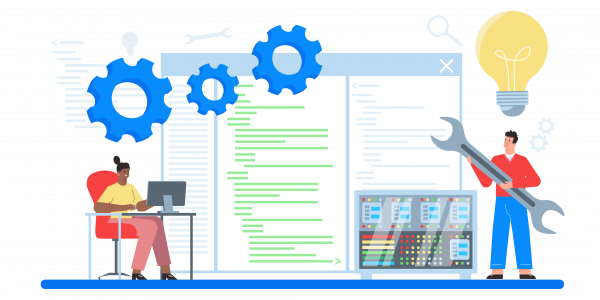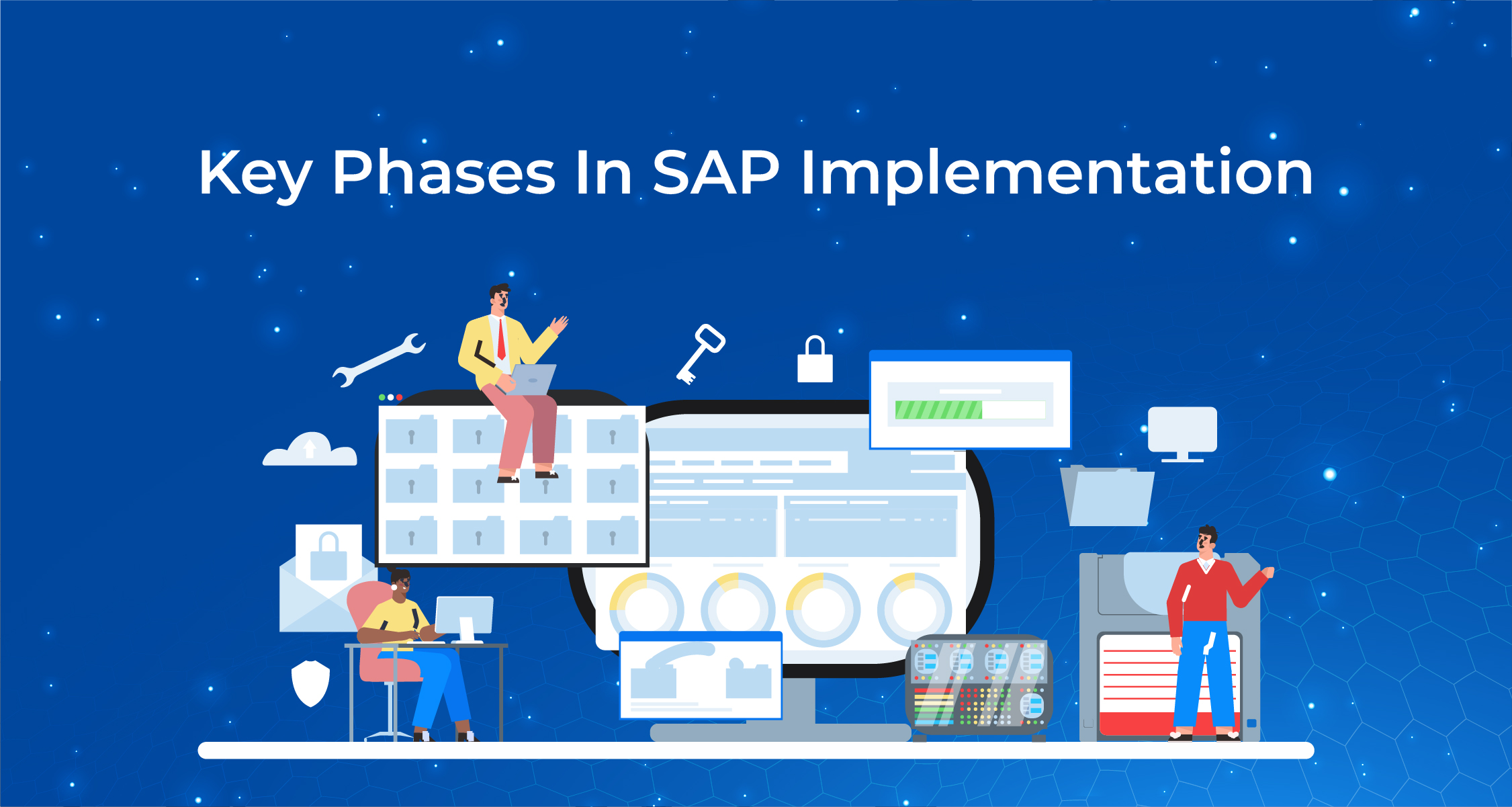Implementing SAP applications in any business is becoming a crucial element. Hence, every management ensures that the implementation of SAP is carried out successfully. Despite the struggles and efforts that have been taken many SAP implementations tend to fail due to various reasons. Numerous businesses get the beginning gone wrong in the SAP ERP implementation phases.
Thus, it is vital to consider and follow all the key phases in SAP implementation for a successful process. Regardless of the SAP system implemented, be it SAP S/4HANA, SAP ERP, or whatnot, following the key stages determines the success rate of implementation. In this blog, let us look at the implementation phases in SAP.

This is the foremost phase that can lead to the failure of the SAP implementation process in the organization. In this phase, the planning of the implementation project and the challenging factors and details involved in the project are anticipated and potential measures are considered. Thus it is crucial to get professional help from the right SAP consulting services as they can efficiently aid in creating the most effective roadmap for SAP. In accordance with your objective, priorities, and scope mentioned, they can provide you with a successful implementation of SAP.

It is wise to make an in-depth outline or a blueprint of future business processes, as there can be various gaps or differences in your current and future processes. This aids in alleviating the gaps and ensure a seamless SAP implementation. The changes in the organization also include the basic information that ought to be customized for the successful implementation of SAP to function.

This phase in the SAP ERP implementation phases requires the hands of professionals. The baseline system configuration is performed by your SAP service provider in order to fine-tune the system so that the system meets all your process and business requirements. This is done to eliminate the gaps in your business blueprint and provide a seamless implementation of SAP. Any necessary modifications are also handled by the SAP service providers during this phase.

The combination of SAP S/4HANA and cutting-edge technologies increases the effectiveness of your workflow. The platform may easily include cutting-edge advancements like AI (artificial intelligence), ML (machine learning), RPA (robotic process automation), or the IoT (internet of things). The solutions with SAP support and implementation services aids your business to boost productivity, efficiency and make your organization ready to face the future.

This phase is when you migrate every data to the production environment of SAP systems. The previously used systems are eliminated and the new SAP systems are put into practice once all the data are migrated. Alongside the data migration, the project managers run tests at intervals in order to verify that everything works as per the expectations.
Knowing the implementation phases in SAP system can provide you with a clear vision of what the process comprises and you can rely on your SAP service provider if they are following every phase appropriately.

